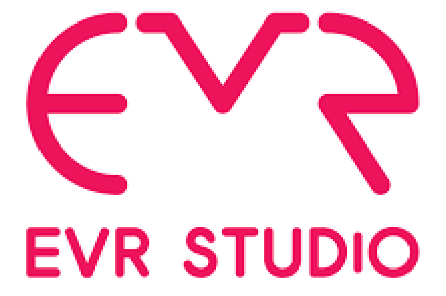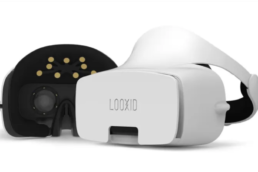Only a few years ago, VR was the craze in South Korea. Thanks to the buzz around the metaverse, VR startups in Korea are looking to cash in on this immersive experience. The global VR market is estimated to be worth over $15 billion. Companies all around the world understand that the metaverse has the potential to open the door for new experiences, technologies, and innovation.
With the announcement by Facebook of their metaverse, South Korean VR startups are looking to incorporate their technology and services for businesses looking to enter this new and exciting space. More and more companies are creating immersive experiences using virtual technology. This is even more important now than ever before due to the COVID-19 pandemic.
Korea is home to some of the top emerging players in the VR industry. We also have that article for those interested in learning about AR startups in Korea.
Here are the top VR startups in Korea utilizing the 3D space.
The Top VR Startups in Korea
VA Corporation

VA Corporation is a one-stop virtual media platform optimized for the Metaverse industry. The startup’s current valuation is estimated to be over $1 billion, making it a unicorn startup in Korea. They have been creating Metaverse content based on 3D virtual production using special effects for over a year. Their latest funding round saw them get over $80 million from private equity fund Paratus Investment Inc.
VA Corporation has its own virtual production studio called VA Studio Hanam, which spans 15,000 square meters in Gyeonggi Province. The facility is used for creating VR content that can be used on Metaverse platforms as well as live commerce and film. In addition, their latest funding will go towards expanding their virtual production studio and incorporating AI humans into their products/services.
DoubleMe
 Korean Metaverse startup DoubleMe offers a hologram-based mixed reality service for consumers. This is possible due to Korea’s robust 5G infrastructure. Therefore, their aim is to build holograms in digital spaces that can reflect the physical world. Their service offers a two-way hologram mixed reality where users can independently create their hologram within the system. Moreover, AI technology will create holograms from photos taken with a 3D camera. Then users can use wearable devices for virtual meetings. The ultimate goal is to have users only use their smartphones or computers to view the hologram content.
Korean Metaverse startup DoubleMe offers a hologram-based mixed reality service for consumers. This is possible due to Korea’s robust 5G infrastructure. Therefore, their aim is to build holograms in digital spaces that can reflect the physical world. Their service offers a two-way hologram mixed reality where users can independently create their hologram within the system. Moreover, AI technology will create holograms from photos taken with a 3D camera. Then users can use wearable devices for virtual meetings. The ultimate goal is to have users only use their smartphones or computers to view the hologram content.
Using hologram technology, companies can create high-quality content for the virtual world. This allows users to view the virtual world much like they would in the physical world.
Supported by Samsung and SK Telecom
In late 2020, DoubleMe was selected for SK Telecom’s True Innovation Program and Samsung’s C-Lab Outside program. The startup has gained much traction since COVID, as big telecommunication companies are looking for technologies that offer solutions for direct contact with others. TwinWorld, their social holographic reality application, offers holographic entertainment and teleconferencing solutions. TwinWold can be used as experience centers, and rooms that allow everyday users to meet virtually face to face. So far, 13 TwinWorld experience centers are in operation around the world. Therefore DoubleMe has already partnered with 12 other global telecom operators.
To date, DoubleMe has raised over $12.8 million.
MARVRUS

MARVRUS is a VR Content startup that developed a VR Teleport English tool called SPEAKIT. It uses realistic VR content; the solution exposes the learners to real-life situations such as making hotel reservations, visiting the immigration office, attending schools abroad, and doing a job interview. Therefore it uses images and videos taken from real situations and allows users to speak with native English speakers. Therefore learners can practice real-life situations repeatedly from the comfort of their homes. SPEAKIT has over 100 episodes in cities like New York, London, and Sydney. It is the ultimate immersive VR learning program. They have raised over $8 million for their Series A round.
“The basic idea of SPEAKIT is that users can go abroad to learn English in a second. Based on realistic content using VR, the solution exposes the learners to real-life situations such as making a hotel reservation, visiting an immigration office, attending a school overseas, or having a job interview,” said the CEO of MARVRUS Lim Sera.
AI Voice Recognition Technology
The students wear VR headsets that are attached to a smartphone. The VR tool allows students more personalized feedback using voice processing technology. They have their own emotional AI technology capable of analyzing the user’s voice, pronunciation, and intonation. In addition, it can explore the user’s facial expressions and feelings like fear or nervousness. Moreover, this technology will be even better with 5G technology. Since the COVID-19 pandemic, there has been a massive demand for non-contact education solutions. MARVRUS is already in China and Japan and will be looking to expand to other countries. The company is clearly showing a new direction for the future of education.
JoyFun

SKonec Entertainment
 Korean VR startups SKonec Entertainment provides the development and service of VR content. They recently opened a VR multiplex called VR SQUARE. Moreover, their most notable games are the VR arcade games Beat Saber and Battle Arena: Mortal Blitz. Battle Arena: Mortal Biltz is a VR first-person shooter that can handle up to 4 players. This is SKonec Entertainment’s leading franchise and hopes it will become one of the main players in the VR esports space.
Korean VR startups SKonec Entertainment provides the development and service of VR content. They recently opened a VR multiplex called VR SQUARE. Moreover, their most notable games are the VR arcade games Beat Saber and Battle Arena: Mortal Blitz. Battle Arena: Mortal Biltz is a VR first-person shooter that can handle up to 4 players. This is SKonec Entertainment’s leading franchise and hopes it will become one of the main players in the VR esports space.
EVR Studio
 Korean VR startups – EVR studio makes VR content more immersive and attractive for users by using real-life interactive characters. Their most famous game is “Project M”. It is a world where users can connect with digital AI characters. Therefore EVR studio has a team of professionals in game development, Hollywood VFX graphics, engineering, fashion, writing, and photography.
Korean VR startups – EVR studio makes VR content more immersive and attractive for users by using real-life interactive characters. Their most famous game is “Project M”. It is a world where users can connect with digital AI characters. Therefore EVR studio has a team of professionals in game development, Hollywood VFX graphics, engineering, fashion, writing, and photography.
Widebrain

Wibebrain uses technology to create virtual spaces quickly and easily. They aim to provide users with economic opportunities on the Metaverse. Widebrain allows anyone to be an owner of a virtual space on the Metaverse. These virtual spaces will be easy-to-build with high scalability. Users can create their content studio and asset repository for content production. For example, a retail brand can open its own eCommerce Metaverse space where customers can shop in virtual stores. There are many possibilities for channels for diverse customer experiences. Widebrain has developed a partnership with LG CNS in Korea.
Some of the other virtual worlds Widebrain offers is a digital arena where students can learn and communicate with one another. Widebrain is positioning itself as an ed-tech company that provides new learning experiences through digital content, AI, and VR. However, their potential to work with other industries for digital content is huge as companies worldwide are looking to enter the Metaverse space.
Popular
Related Posts
Top 10 Digital Content Publishing Startups in Korea to Know
November 14, 2022
Standalone VR Headset Startups in Korea to Watch For
November 6, 2023






